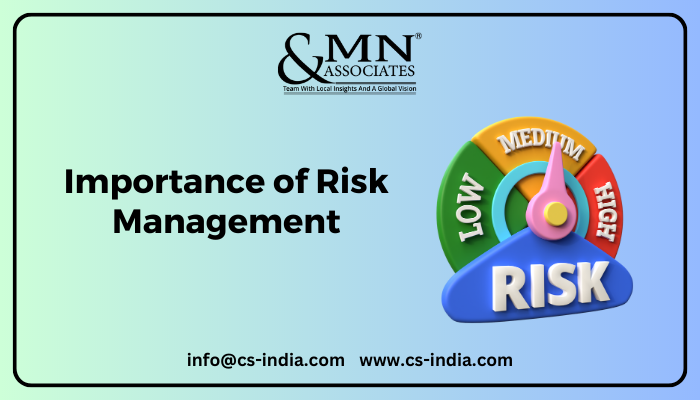The Rising Importance of Risk Management in Health and Safety
The Importance of Recognizing the Relevance of Risk Management in Different Industries

The Core Idea of Risk Management and Its Function
Risk Management, the keystone of numerous markets, hinges on the recognition, examination, and mitigation of uncertainties in a business setting. By properly determining prospective dangers, services can establish techniques to either prevent these dangers from happening or reduce their effect. When risks have been recognized and assessed, the reduction procedure involves devising techniques to minimize their possible influence.
Advantages of Applying Risk Management in Business Workflow

Unveiling the Function of Risk Management in Different Industries
While every industry faces its one-of-a-kind set of threats, the application of Risk Management approaches continues to be a common measure in their search of sustainability and development. In the healthcare market, Risk Management requires making certain person safety and data protection, while in financing, it involves mitigating investment threats and guaranteeing governing compliance (importance of risk management). Construction companies focus on employee safety, task hold-ups, and budget overruns. In the technology industry, business minimize cybersecurity hazards and innovation obsolescence. Inevitably, the function of Risk Management across markets is to determine, evaluate, and minimize threats. It More Help is an essential element of calculated planning, enabling companies to safeguard their properties, make best use of possibilities, and accomplish their objectives.
Real-life Study Demonstrating Successful Risk Management
To understand the importance of Risk Management in these many industries, one can want to several real-life circumstances that highlight the effective application of these procedures. For example, in the energy industry, British Petroleum established Risk mitigation plans post the 2010 Gulf of Mexico oil spill. They carried out far better security procedures and more stringent policies which significantly reduced more mishaps. In money, Goldman Sachs successfully navigated the 2008 economic dilemma by identifying possible mortgage-backed safety and securities threats early. Last but not least, Toyota, publish the 2011 earthquake in Japan, revised its supply chain Management to minimize disturbance risks. These instances demonstrate just how markets, picking up from crises, properly used Risk Management approaches to minimize future threats.
Future Patterns and Growths in Risk Management Methods
As the world remains to advance, so also do the patterns and growths in Risk Management approaches. Quick developments in modern technology and data analytics are improving the original site Risk landscape. Huge information and AI are now crucial in anticipating and reducing threats. Organizations are leveraging these devices to build predictive versions and make data-driven decisions. Cybersecurity, when a peripheral worry, has catapulted to the leading edge of Risk Management, with techniques concentrating on discovery, avoidance, and reaction. The assimilation of ESG (Environmental, Social, Governance) aspects into Risk Management is another expanding trend, reflecting the boosting acknowledgment of the duty that social and ecological dangers play in company sustainability. Thus, the future of Risk Management exists in the blend of innovative technology, ingenious methods, and an all natural strategy.
Conclusion
In final thought, comprehending the relevance of Risk Management throughout a range of markets is crucial for their long life and prosperity. Ultimately, successful Risk Management adds to extra resilient and sustainable services, highlighting the significance of this technique in today's extremely competitive and dynamic service atmosphere.
While every market faces its one-of-a-kind set of threats, the application of Risk Management methods continues to be a common denominator in their quest of sustainability and development. In the medical care field, Risk Management requires ensuring patient safety and security and information security, while in money, it entails mitigating investment threats and guaranteeing regulative compliance. Ultimately, the duty of Risk Management across industries is to determine, assess, and alleviate dangers. These cases demonstrate just how sectors, discovering from look at this now situations, successfully used Risk Management strategies to lower future dangers.
